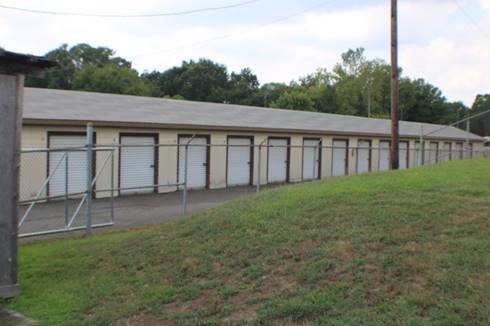Storage space can be ideal for storing excess toiletries when you buy them in bulk
Storage space in Harrisburg NC can be perfect for storing toiletries and all bathroom essentials when you buy them in bulk. When it comes to utilizing self-storage units, people often think of furniture, old clothes, or seasonal decorations. But what about toiletries like shampoo and soap? Is it wise to store these items in a self-storage unit, and what is the shelf life for such products? In this article, we’ll explore the considerations and best practices for storing excess toiletries in a storage unit.
Shelf Life of Toiletries
Before discussing storage options, it’s essential to understand the shelf life of toiletries. Toiletries, such as shampoo, soap, and other personal care products, are designed for regular use and have specific shelf lives. The shelf life can vary depending on the type of product and its formulation. Here are some general guidelines:
- Shampoo: Shampoo typically has a shelf life of about two to three years. However, this can vary based on the specific brand and ingredients. Check the product label for an expiration date or any recommended use-by date.
- Soap: Bar soaps have a longer shelf life than liquid soaps. Bar soaps can last for years if stored properly, while liquid soaps should be used within one to two years. Again, check the product label for guidance.
- Toothpaste: Toothpaste generally remains effective for up to two years. It’s important to note that expired toothpaste may not be harmful, but it might be less effective in cleaning your teeth.
- Lotions and Creams: These products usually have a shelf life of one to three years. However, products containing natural ingredients or active agents may expire more quickly.
- Sunscreen: Sunscreen can last for about three years. It’s crucial to use sunscreen within its shelf life because its effectiveness diminishes over time.
- Makeup: Makeup items like foundation, mascara, and lipstick have varying shelf lives, usually ranging from a few months to a couple of years. Pay close attention to expiration dates on these products, as using expired makeup can lead to skin issues.
Storing Toiletries in Self-Storage Units
Now that you have an understanding of toiletry shelf life, the question remains: should you store toiletries in a self-storage unit? Here are some factors to consider:
- Temperature Control: Self-storage units can experience temperature fluctuations. Extreme heat or cold can impact the quality of toiletry products. It’s advisable to choose a climate-controlled unit if you plan to store toiletries for an extended period.
- Expiration Dates: Before storing any toiletries, check their expiration dates. If a product is close to or has already exceeded its shelf life, it’s better to use it or give it away rather than store it.
- Packaging: Ensure that toiletries are tightly sealed and stored in their original packaging. This will help protect them from external elements.
- Labeling: Properly label your toiletry containers to make it easier to identify what’s inside. This can save you time when you need to retrieve specific items.
- Consider Alternatives: If you have a large surplus of toiletries, consider donating them to a local shelter or charity. It’s a more practical solution than paying for storage.
- Frequency of Access: If you anticipate needing these items frequently, consider other storage options, like under-bed containers or bathroom cabinets.
Safety and Hygiene Concerns
When storing toiletries in a self-storage unit, it’s also essential to consider safety and hygiene. Here are some additional tips to ensure your items remain safe and usable:
- Seal Items Properly: Ensure that all containers are tightly sealed to prevent leaks or spillage. You can use plastic bags or containers to provide an extra layer of protection.
- Organize by Category: Keep similar items together and organize them by category. This makes it easier to locate specific toiletries when you need them.
- Regular Check-Ups: Periodically visit your storage unit to check on the condition of your toiletries. Ensure that nothing has leaked, expired, or become damaged.
- Moisture Control: Moisture can be a concern in self-storage units, so consider using moisture-absorbing products like silica gel packets to keep your toiletries dry.
- Proper Shelving: Invest in shelving or storage units to keep your toiletries off the floor. This helps protect them from potential moisture and pests.
- Security: Make sure your self-storage unit is secure, and only authorized individuals have access to it. This will help prevent theft or tampering with your belongings.
Donation and Environmentally Friendly Options
If you have toiletries that you won’t use but are still within their shelf life, consider donating them to local charities, shelters, or community organizations. This not only helps those in need but also reduces waste and promotes environmentally friendly practices.
Furthermore, as part of a broader effort to be eco-conscious, consider purchasing toiletries in smaller quantities or products with minimal packaging. This can help reduce waste and the need for excess storage space in the long run.
In conclusion, storing excess toiletries in a self-storage unit can be a practical solution, but it requires careful planning and attention to various factors. Understanding the shelf life of toiletry products, proper packaging, climate control, and regular checks are all essential for maintaining the quality and usability of these items. Additionally, consider alternatives such as donation and environmentally friendly purchasing practices to reduce waste and make the most of your storage space. By following these guidelines, you can ensure that your toiletries remain in good condition and ready for future use.
Reserve storage space in Harrisburg NC to store excess toiletries
Mr. Storage is locally owned and managed with affordable pricing. We have storage facilities in Concord, Salisbury, Harrisburg, Kannapolis NC, and Midland. Contact us today to reserve your unit.

